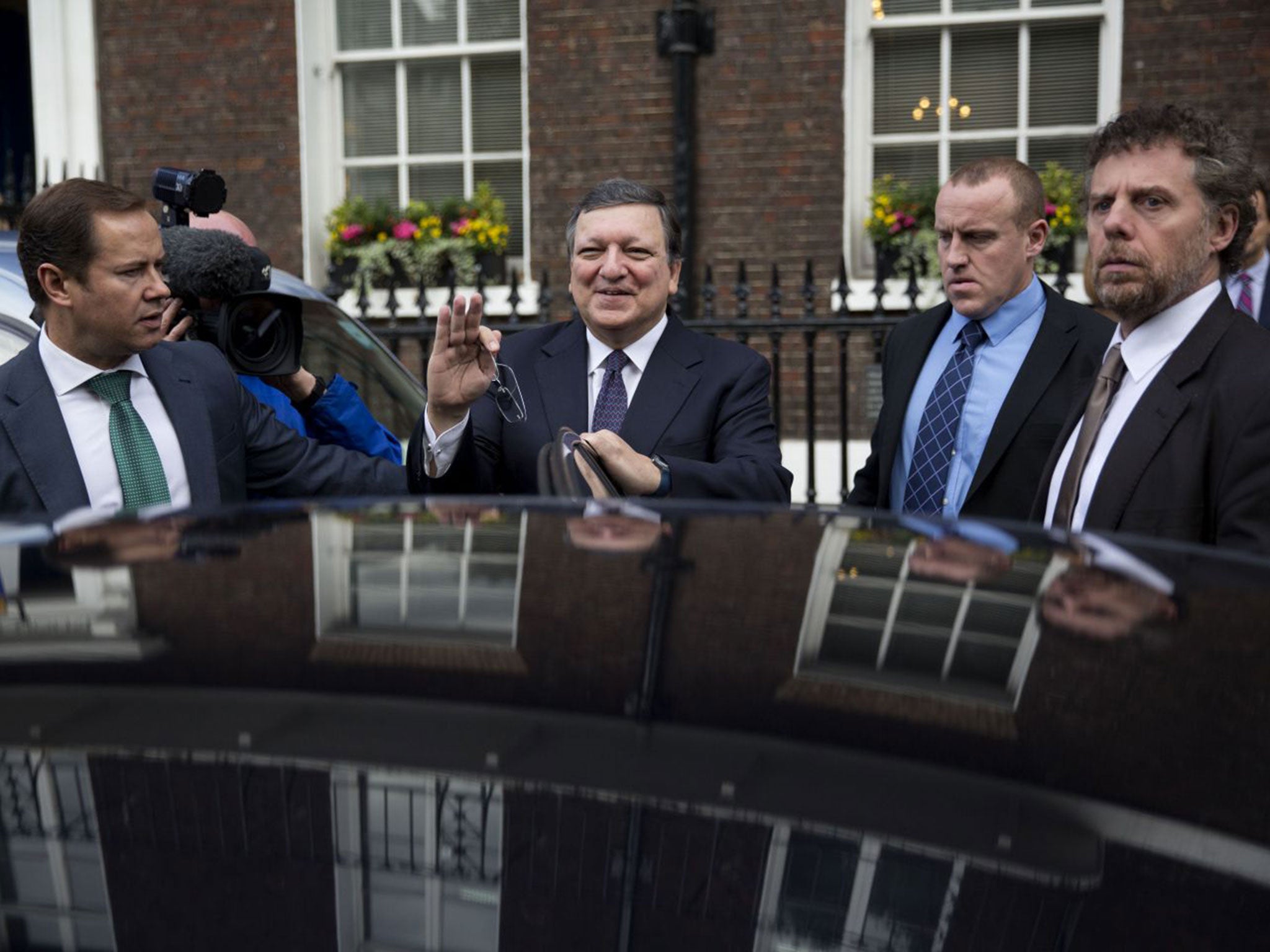David Cameron’s failure to confront UKIP is a betrayal of Margaret Thatcher’s vision, says José Manuel Barroso

Your support helps us to tell the story
From reproductive rights to climate change to Big Tech, The Independent is on the ground when the story is developing. Whether it's investigating the financials of Elon Musk's pro-Trump PAC or producing our latest documentary, 'The A Word', which shines a light on the American women fighting for reproductive rights, we know how important it is to parse out the facts from the messaging.
At such a critical moment in US history, we need reporters on the ground. Your donation allows us to keep sending journalists to speak to both sides of the story.
The Independent is trusted by Americans across the entire political spectrum. And unlike many other quality news outlets, we choose not to lock Americans out of our reporting and analysis with paywalls. We believe quality journalism should be available to everyone, paid for by those who can afford it.
Your support makes all the difference.David Cameron’s failure to confront and challenge UKIP’s demands for restrictions on migration is a betrayal of Margaret Thatcher’s vision of free markets, the outgoing president of the European Commission has said.
Baroness Thatcher, said José Manuel Barroso, would have fought UKIP over European immigration rather than “surrendering” to populist demands.
Barroso invoked the ghost of Mrs Thatcher as he lambasted David Cameron’s handling of inter-European migration and the threat posed by UKIP to the Tory vote.
He argued, in an interview, that instead of retreating in the face of UKIP’s popularity, Lady Thatcher would have confronted them head-on and refused to budge.
By pandering to “populist” demands by UKIP, he suggested, the Conservatives have put themselves in a position of backing protectionism rather than free market Thatcherism.
He was also scathing of Cameron and other senior Tories for failing to take a lead on issues they believed in.
“Leaders should lead, not go along behind public opinion. Privately, many British leaders tell me … they are in favour of the EU,” he told the Daily Telegraph.
“If they support British membership, they should leave the comfort zone and speak out. But I don’t see many public figures who have the courage to do it.”
The outgoing European Commission president fiercely defended the right to free movement within the EU and said the vast majority of those who travel to work in Britain contribute to society and pay more in taxes than they take in benefits.
“The evidence is that migration has been good for Britain and many other countries,” he insisted, and said it was dangerous to reinstate barriers between member countries.
“It is a mistake to give in to those negative forces of protectionism – because this is a form of labour market protectionism,” he warned.
“As a friend of Britain looking from the outside, I remember well Margaret Thatcher. I worked with her when I was young, as deputy foreign minister of Portugal.
“The Conservative sentiment was a sentiment of openness. So I am surprised when I see so many Conservative politicians surrendering to the arguments of Ukip.”
“It would be impossible to hear Ukip speech coming from Margaret Thatcher, completely impossible. She was the great champion of the enlargement to new member states. Is Britain now going to lose the great political capital it has, with countries like Poland?
“What I remember about Margaret Thatcher, she was for enlargement and for fighting rotectionism. I don’t remember her defending labour market protectionism. On the contrary she was for opening markets. From what I remember of Thatcher she would not be surrendering to these arguments.”
Mr Cameron has faced persistent demands from elements of the Tory party to withdraw from Europe or at least to renegotiate the terms of membership. Migration and rulings by the European courts are among the most contentious issues.
He said in response to criticism that any moves to restrict migration would be in breach of European law: “I’m very clear about who the boss is, about who I answer to, and it is the British people. They want this issue fixed, they are not being unreasonable about it, and I will fix it.”
Join our commenting forum
Join thought-provoking conversations, follow other Independent readers and see their replies
Comments